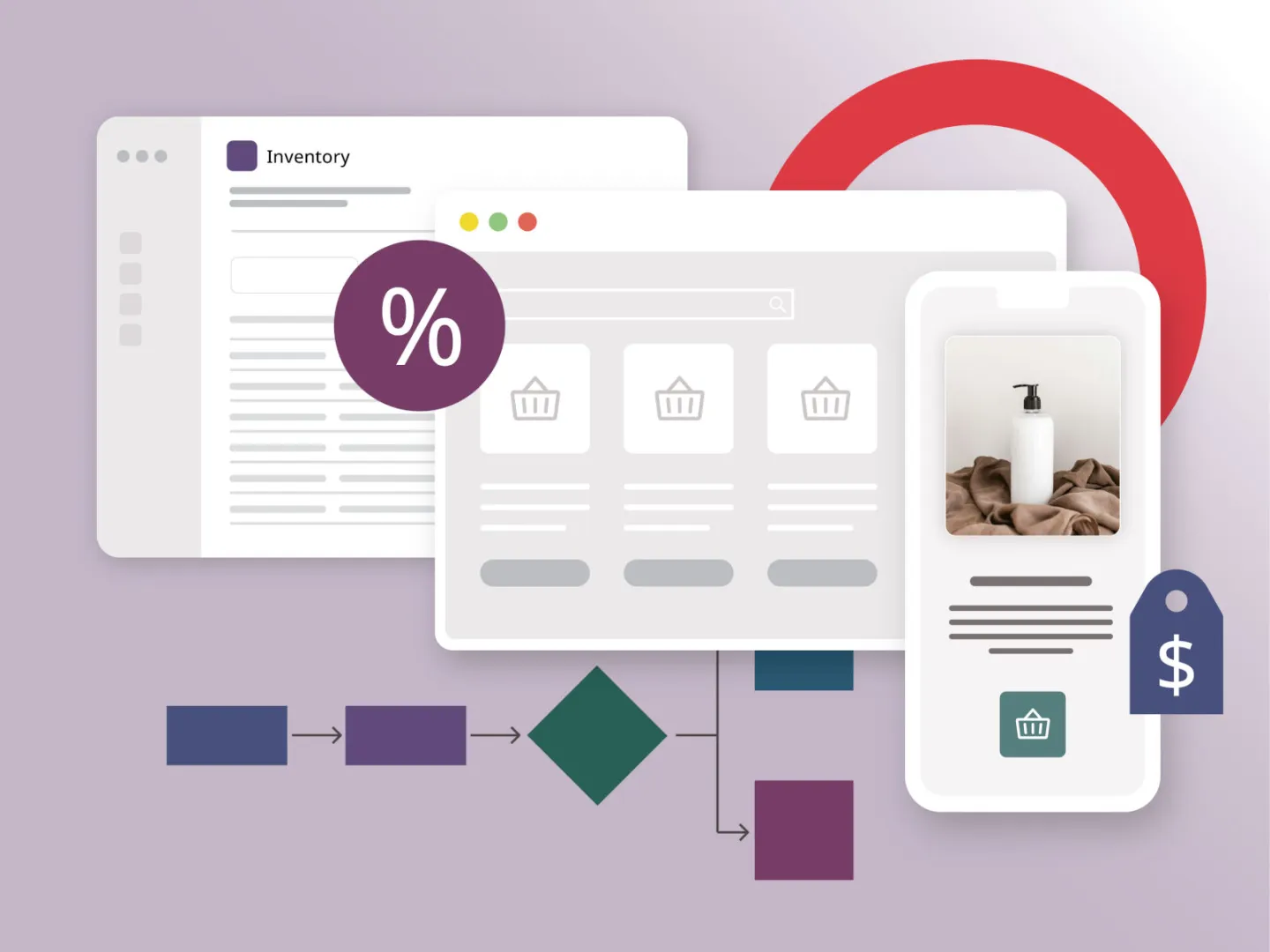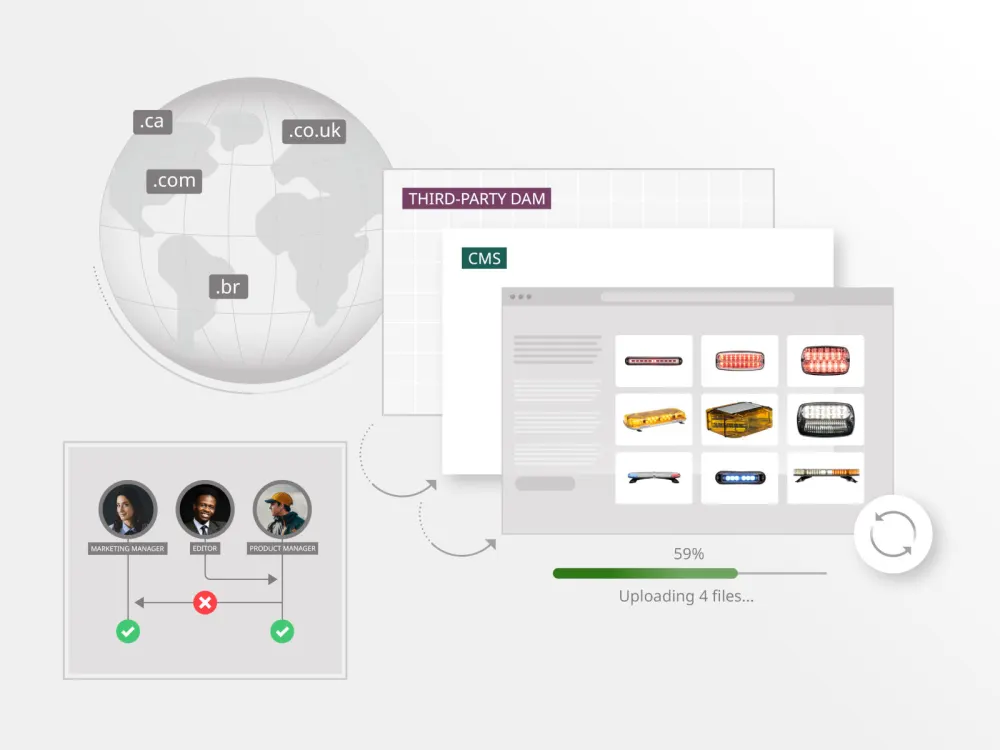If you’re running an e-commerce business in 2025, do you really need a content management systems (CMS)?
If you answered “no”, you wouldn’t be alone. After all, a store is a store, and a blog is a blog, and neither of the two will meet, right?
Wrong.
More and more, e-commerce businesses are leveraging CMSes to create and curate compelling content experiences — essentially, storytelling about their products. As the number of e-commerce businesses proliferates, many of those will leverage a CMS and its capabilities to sell products. It may give them an edge over competitors who don’t, and here’s why.
The importance of a CMS in e-commerce
First, it’s important to understand the benefits that a CMS can provide to an e-commerce business. While CMSes are more commonly thought of as a tool for media publishers and corporate communications teams, they can be a Swiss army knife for e-commerce businesses as well. Here are a few of the top benefits:
- Time & cost savings: Leveraging a CMS as part of your e-commerce ecosystem can lead to significant savings, particularly with self-hosted solutions like Shopify and Squarespace. Most offer an intuitive, user-friendly interface that allows anyone to build content and landing pages, reducing development costs. Plus, these solutions also typically handle hosting and security, further freeing up e-commerce teams to focus on moving more products.
- Improved user experience: A great CMS will allow customization of the storefront experience itself, creating a better shopping experience for your customers. For example, a CMS would allow a team to reorganize a store’s navigation to make popular pages easier to access, as well as to quickly add new categories and change the layout of product pages to entice shoppers.
- Nimbly react to new trends: The landscape of e-commerce can seem to shift dramatically overnight, but a CMS can help teams keep up with new trends. A great CMS will allow teams to add new content types as well as new channels — to continue to reach consumers where they are — whether via integration or APIs.
Top CMS features for an e-commerce store
When it comes down to selecting a CMS, finding one that’s a good fit for an e-commerce business can be difficult, as there are many players in the CMS market. Here are the top CMS features that an e-commerce team should look for in a CMS, because these can boost your business.
Intuitive UI: The best CMS for an e-commerce business should make it easy for even non-technical users to dive in and begin creating content. This means the majority of your users can draft, edit and manage all types of content, without assistance from a developer.
Workflow Tools: A CMS can also provide workflow tools, which put approval gates around content to ensure everything is grammatically correct and on-brand. These tools will provide a complete preview of content across devices, as well as scheduling and history tracking.
Integrations: An e-commerce CMS should easily connect to the other mission-critical systems, like CRM, inventory management, payment processing and email service providers. Simple connections between these systems may be easily configured directly in the CMS, such as connecting your Squarespace blog and storefront to Shopify to collect payments from customers — but you may need help from a developer for more complex integrations.
SEO: A CMS can provide a wealth of tools to e-commerce teams when it comes to SEO. Everything from managing page attributes (the page titles and meta descriptions that tell search engines about your products), permalinks and redirects (so search engines know where to find your products) and internal linking tools (which help search engines find their way throughout your entire site).
Integrating payment and inventory systems with your CMS
The integration between your CMS, CRM and PIM (product information management) is critical for an e-commerce business and should be approached carefully. Think of these three as the digital heart of your business; they must work seamlessly together, pumping out the latest product information and content to your customers. Take special care with this integration.
Compatibility: Before choosing a CMS, make sure it will play nicely with your CRM and PIM. A technical team member should review all systems’ documentation, particularly API documentation, and look for successful past unions as well. Pay particular attention to any data synchronization limits, because all three systems must talk to each other constantly in real-time, you don’t want to be hamstrung by a low threshold. For example, you don’t want an article sending customers to a product that’s already out of stock because the CMS and PIM only sync once a day. If you’ve experienced that as a consumer, you know how frustrating that can be.
Scalability: Make sure your CMS is well-matched in terms of size to your CRM and PIM. All three should be able to handle increased traffic and transactions as the business grows without any downtime for customers who may be browsing your site.
Security and maintenance: This one’s a non-negotiable — be sure that all three systems follow the highest standards for handling sensitive information. Look for data encryption, robust permissioning tools and regular audits from all three providers, as well as regular security updates and patches.
Success stories of effectively mingling content and commerce
If you want to see examples of e-commerce businesses that are successfully mixing content and commerce, just start paying attention. In no time, you’ll start to notice storytelling mixed in with your online shopping. In the meantime, here are a handful of e-commerce winners who are mixing both, and creating a great shopping experience at the same time.
Beauty retailers like Lush and Sephora are known for a content-first approach to their products. Lush’s digital storefront showcases its products directly alongside its brand values, highlighting its commitment to ethical and sustainable sourcing, animal welfare and environmental issues.
Sephora’s approach leans heavier into SEO tactics, with highly keyworded on-page descriptions, as well as a deep taxonomy of categories related to beauty categories.
Perhaps the most elegant mixture of content and e-commerce we’ve seen is Food52, which intertwines content and commerce as presented by food writers and chefs. The digital experience seamlessly presents recipes, stories and product reviews with curated kitchenware. Browse the site and you may end up coveting a set of gold measuring cups or a personal fire pit for s’mores.
Selecting the best CMS for your e-commerce needs
As you can see, incorporating a CMS into the digital ecosystem that powers an e-commerce business has a lot of potential.
A well-integrated CMS can help streamline business operations, improve your customers’ shopping experience and generate new revenue. It can also future-proof a storefront against future trends, allowing nimbleness in the face of constantly shifting trends, meaning your products are never left behind whenever a new social media channel opens up.
Who knows — embracing a CMS for e-commerce might be just the strategic shift that unlocks untold growth for your business in 2024.










